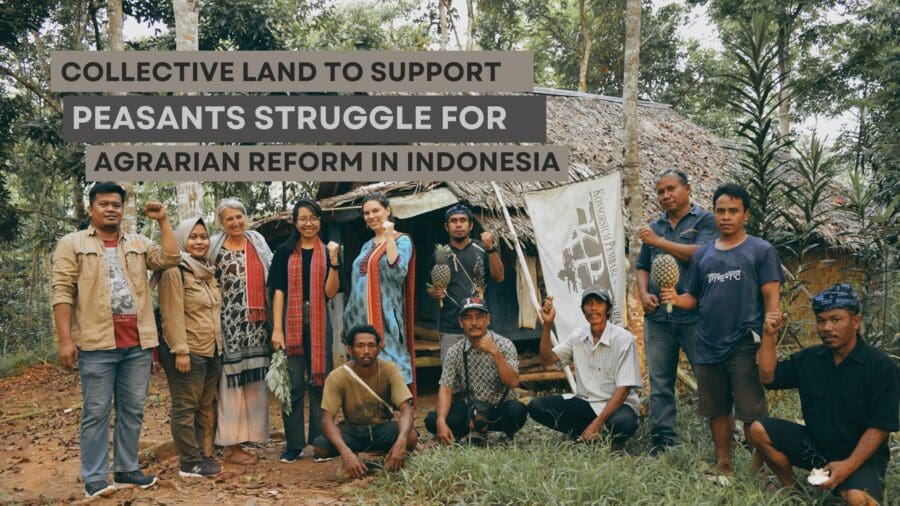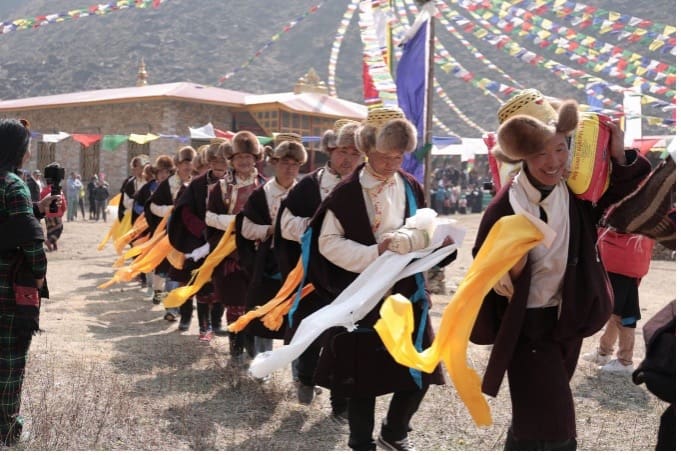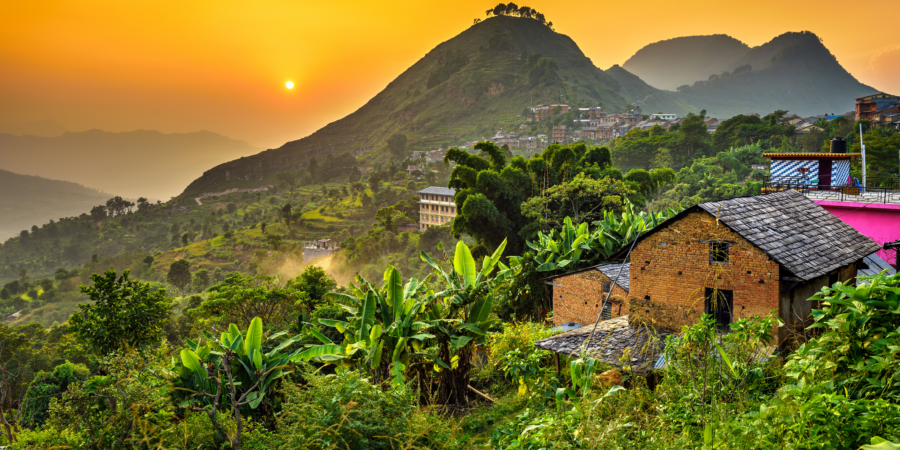RRI collaborators are celebrating two big victories for Indonesia’s agrarian reform movement this October. The Consortium for Agrarian Reform’s years-long advocacy with peasant and smallholder farmers has led to redistribution of two agrarian reform priority locations by the Indonesian Government, transferring their control to peasants and their unions who have long been reclaiming and managing these lands.
The government’s decision lays the groundwork for advancing community land redistribution and economic empowerment for peasant and farming households who have historically faced marginalization in the country.
The two redistributed areas are Gunung Anten Village in Banten province and Muktisari Village, Ciamis Regency in West Java. In Gunung Anten, 198 peasant households received land rights recognition covering 135 hectares, while 150 families in Muktisari received land recognition for 113 hectares. Besides for existing cultivation and housing, these lands are also collectively used for mixed food crops, allocated for establishing traditional markets, building schools and mosques, and creating river water resource and conservation areas to protect the environment and livelihoods.
This is no ordinary feat. It is a result of over 20 years of struggle in the agrarian reform movement and a first for peasants and their unions in the country.
What are Agrarian Reform Priority Locations?
Agrarian Reform Priority Locations (LPRA) is an agrarian reform strategy from below initiated by the Consortium for Agrarian Reform (KPA) with its grassroots community groups composed of peasants, smallholder farmers, tillers, fisherfolks and Indigenous Peoples.
The LPRA system makes visible the agrarian reform movement at the grassroots level. The groups and their unions propose locations that the President, the Agrarian and Spatial Ministry, and the Environment and Forestry Ministry should prioritize and grant local farmers and peasant households the legal right to cultivate and manage these lands. If approved, the lands—already being fully cultivated by these households—are then fully redistributed to the peasants as a means of land conflict resolution under the country’s Agrarian Reform Policy.
“This is a victory to be grateful for, because it was achieved amidst implementation of agrarian reform in various regions, as well as the challenges of the opening up of land and other natural resources to various development projects that threaten and even displace community land in various regions,” said Dewi Kartika, Secretary General of KPA.
Since 2016, KPA, the Banten Peasants’ Union (Pergerakan Petani Banten, or P2B) and the Pasundan Peasants Union (Serikat Petani Pasundan, or SPP) have been advocating for LRPAs and working together to put pressure on local and national governments to empower peasants to govern their lands effectively.
Women and youth take center stage
On October 27, 2023, the Indonesian Agrarian and Spatial Ministry and KPA arrived at a consensus under the Joint Task Force on LPRA Acceleration to implement land redistribution and land recognition of LPRA in Gunung Anten Village. This was the first time the Indonesian government implemented land redistribution in the form of collective land ownership.
Importantly, of the 135 hectares redistributed to 198 peasant households in Gunung Anten, 33 percent of land will go to women peasants and 25 percent to youth. This is in keeping with the LRPA strategy’s focus on gender justice and youth to ensure equity and social justice within farming households.
“I feel very happy, thankful and even more enthusiastic and no longer afraid of anyone disrupting us,” said Mimin, a female member of P2B.
In Muktisari Village, similar gender and social justice dimensions in the redistribution arrangement emerged. Each peasant household received two certificates of ownership, one for the man and one for the women. And 59 percent of cultivation land is being reserved for women peasants.
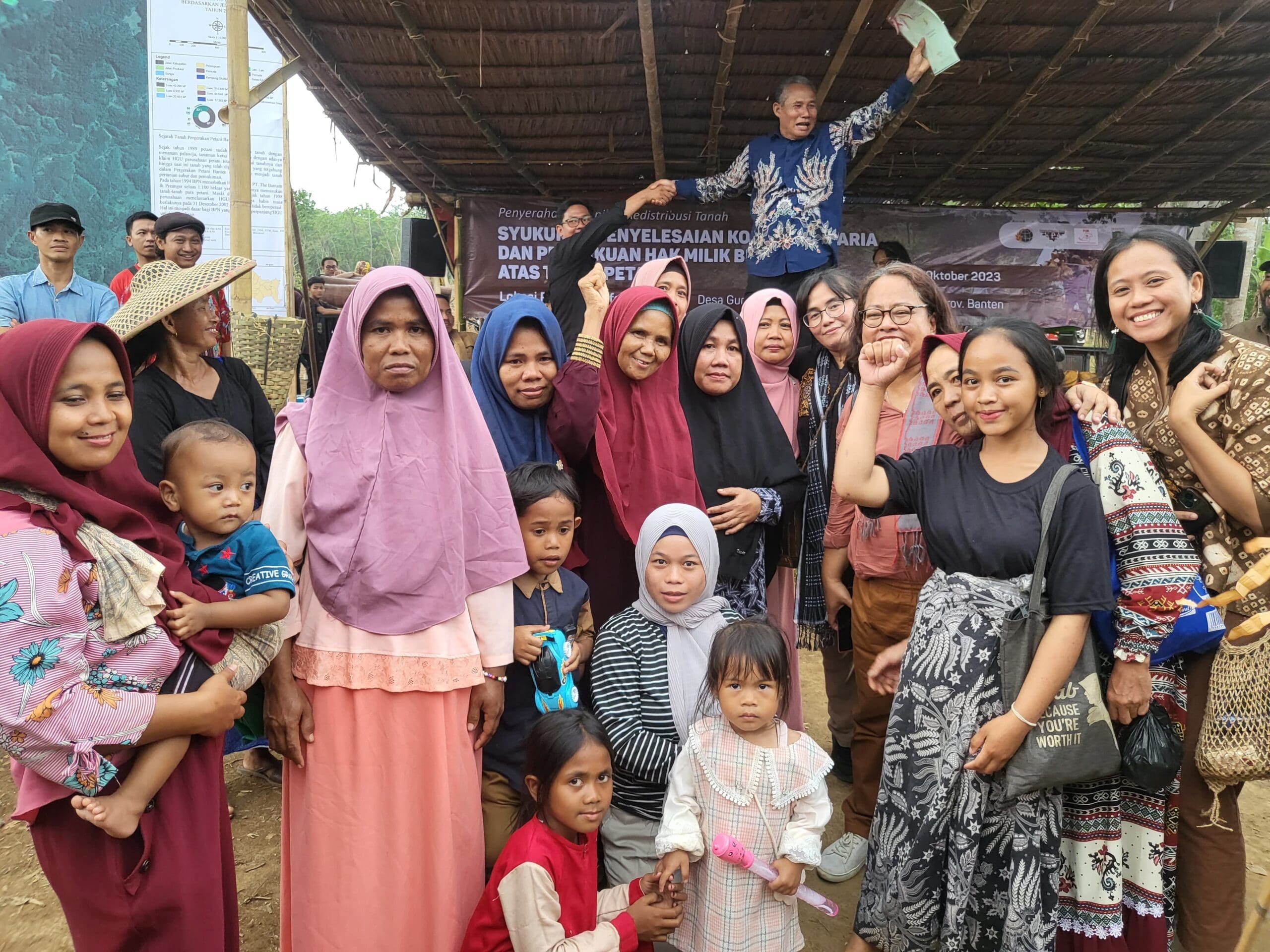
Success story for LPRA in Gunung Anten
Peasants have been cultivating land in Gunung Anten Village since 1989. But in 1994, the government unilaterally issued a 1,100 hectare permit to the private company PT Bantam to construct a rubber plantation on village land. Not only did the permit displace dozens of peasants and their families, the company also never actually began operations.
Since 2008, PT Bantam has reportedly intimidated farmers using various tactics, including damaging crops, harassment and attempted evictions. In 2011, the company even filed criminal charges against three farmers, accusing them of destroying plantation crops and trespassing. As a result, the village peasants formally organized themselves to fight for recognition and joined P2B, a leading actor in the local struggle for agrarian reform and collective land tenure rights.
Now, Gunung Anten Village is an official member of P2B which has strengthened the peasants’ organization by training them in community organizing, land management planning and mapping their territories to help them advocate for their land rights.
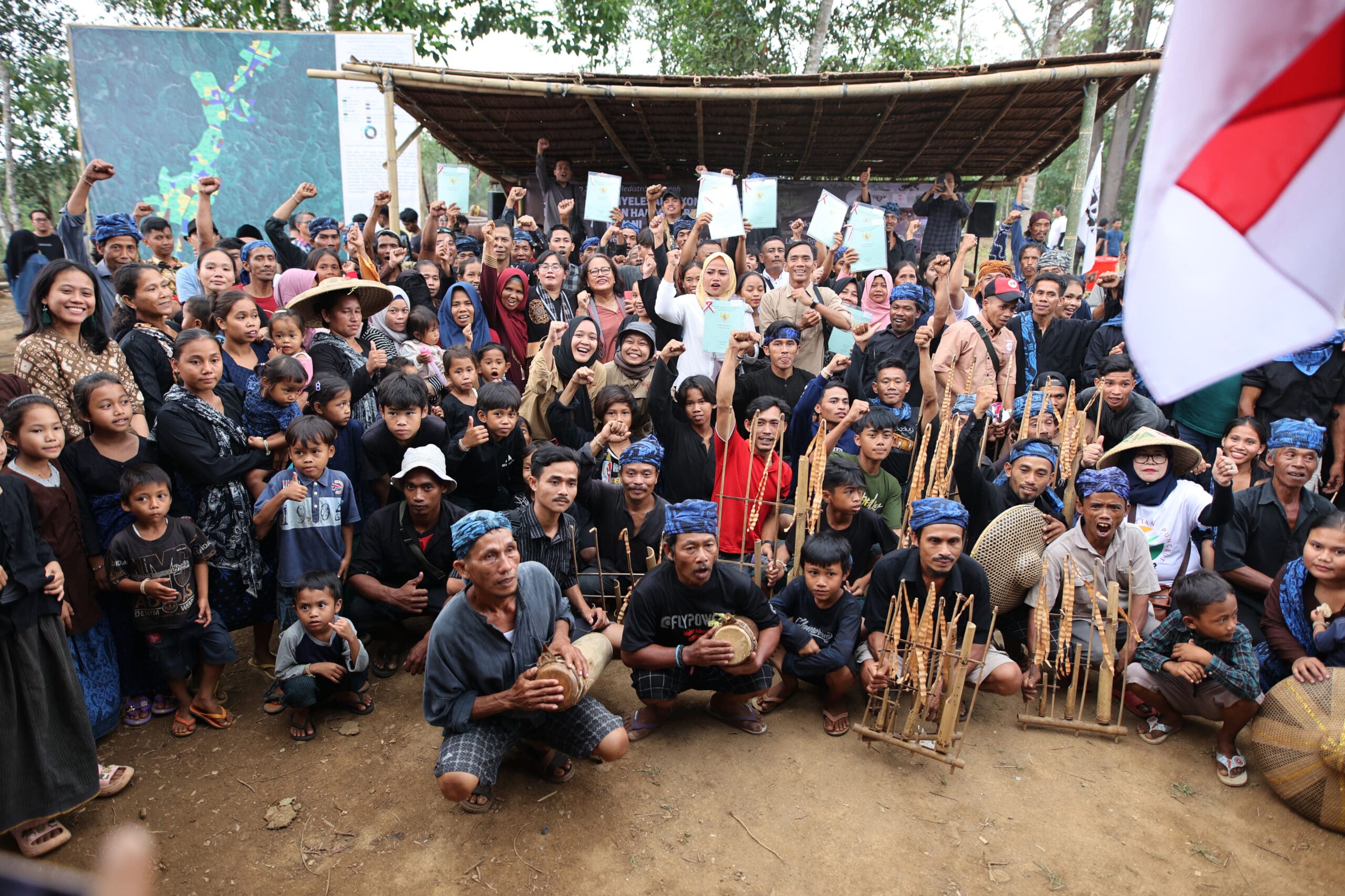
Success story for LPRA in Muktisari Village
After a 24-year conflict with the private company PT Maloya, the Indonesian Agrarian and Spatial Ministry and KPA arrived at a consensus to implement redistribution and land rights recognition in Muktisari Village on October 12, 2023.
When PT Maloya’s plantation permit expired in 2010, the company reportedly used fraudulent tactics—including falsifying a letter by the Muktisari Village Head—to try to extend their permit, all of which were unsuccessful. KPA and SPP had been proposing land conflict resolution and redistribution for Muktisari Village to the Ministry since 2016. After years of struggle, they achieved full recognition of land rights for their members where 113 hectares of land were redistributed to 150 families.
What makes this LPRA even more unique is its emphasis on social justice. Land is allocated for social and public facilities such as peasants’ cooperatives, scout centers and campsites, village roads, agrarian reform academies, and conservation areas in the village. Because SPP can demonstrate that the land is not just for peasants, a disabled education institution targeting rural groups is also being proposed.
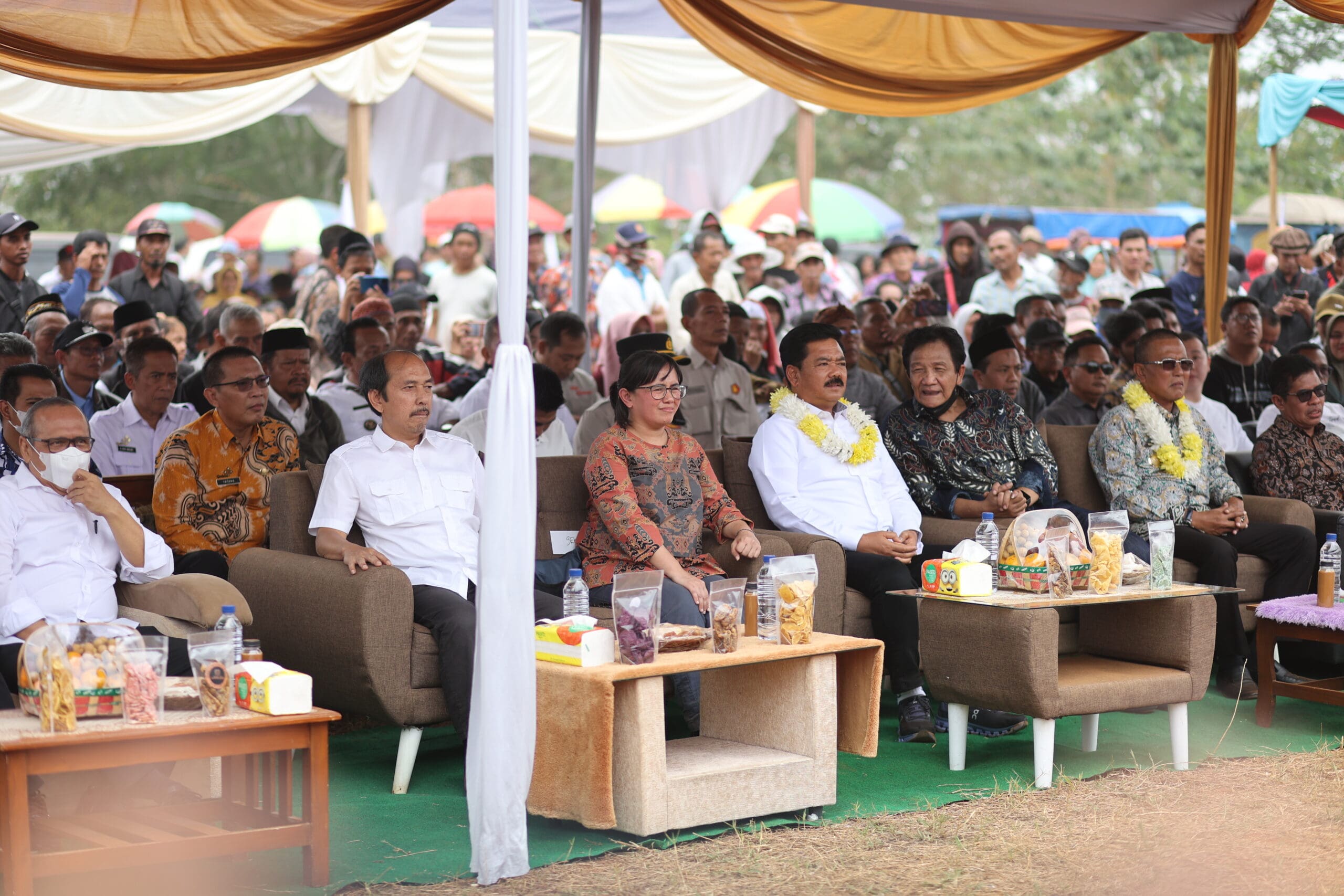
What’s next?
KPA will continue to work with the peasants and their unions to transform the agrarian reform movement from a land rights struggle to a new model of economy and production that guarantees food sovereignty and community livelihoods in the villages. This model will be implemented through a strategy called DAMARA.
Desa Maju Reforma Agraria (DAMARA) aims to encourage rural social transformation through four main pillars: changes in governance, production, consumption systems and tenure rights.
KPA has implemented DAMARA for farmer organizations since 2014. Its measures focus on encouraging agrarian transformation in rural areas that is more equitable, sustainable and prosperous. In particular, it focuses on restoring the inequality of agrarian structures in villages, including by resolving agrarian conflicts that are the basis for recovery of the political and economic rights of rural communities; creating enabling conditions for more sustainable smallholder agriculture; and developing and strengthening the villages’ potential for more equitable and independent production.
“Now, we can work on develop DAMARA without fear of being displaced again,” said Abay Haetami, chairman of P2B Union.

